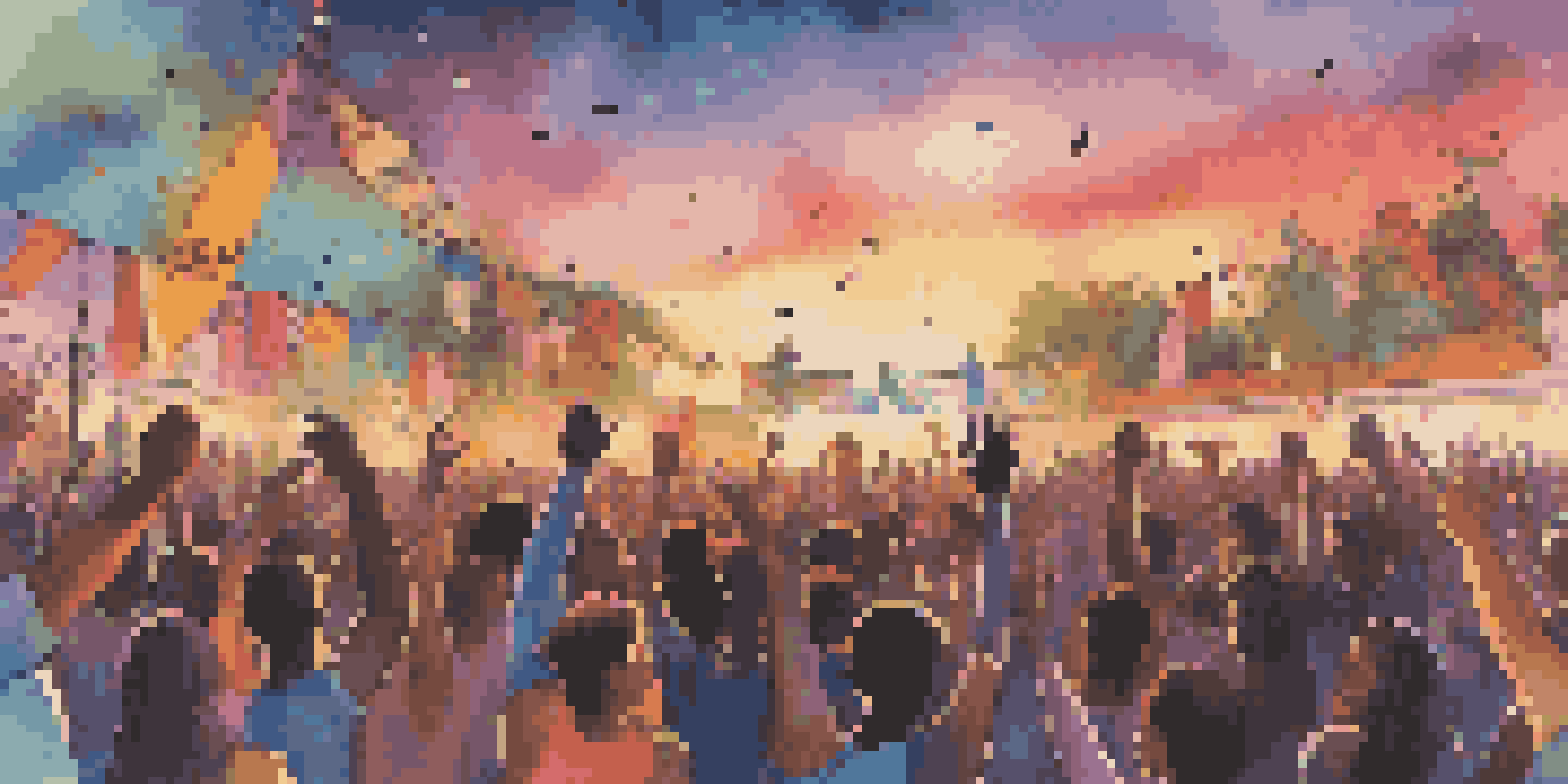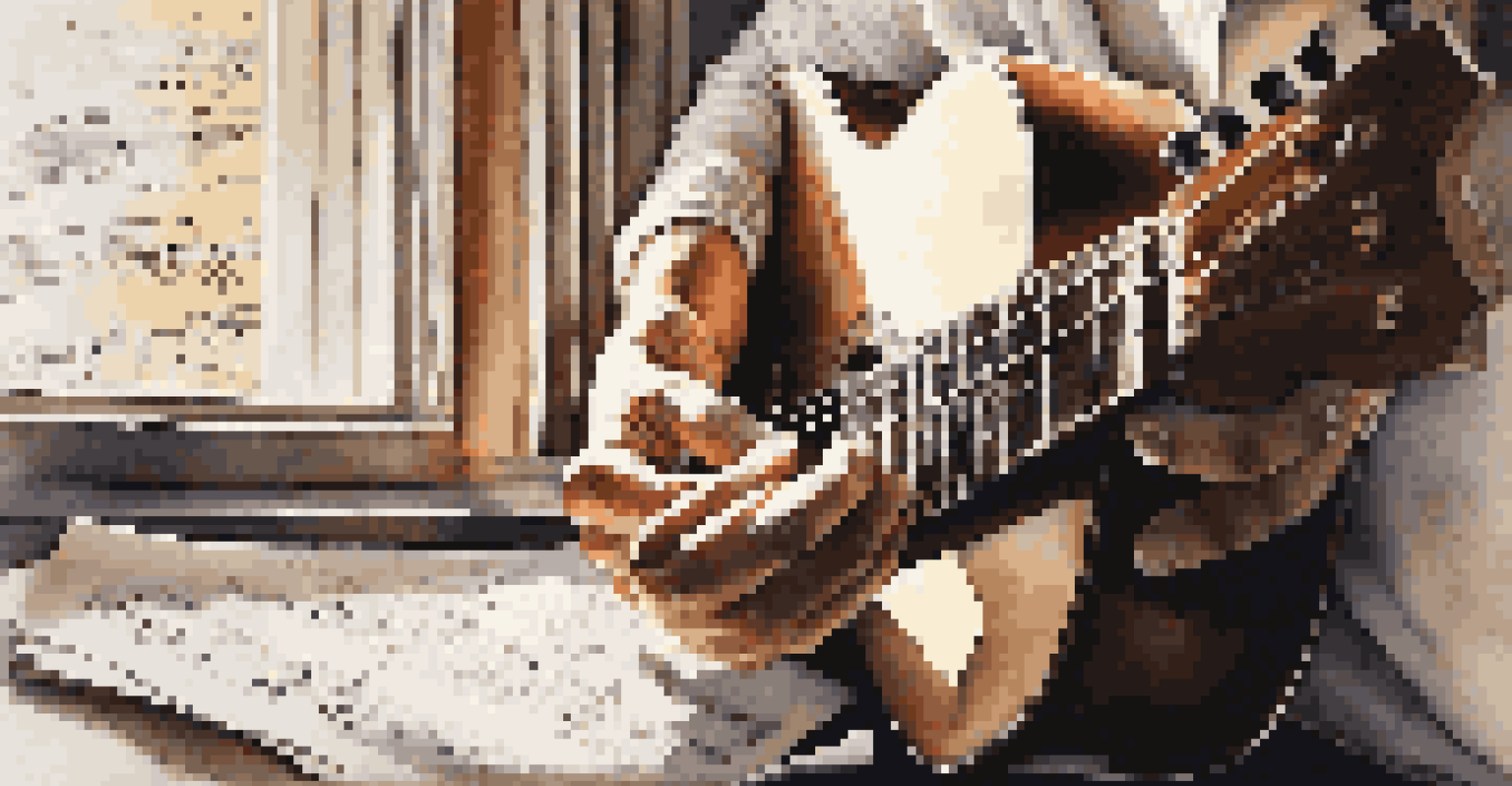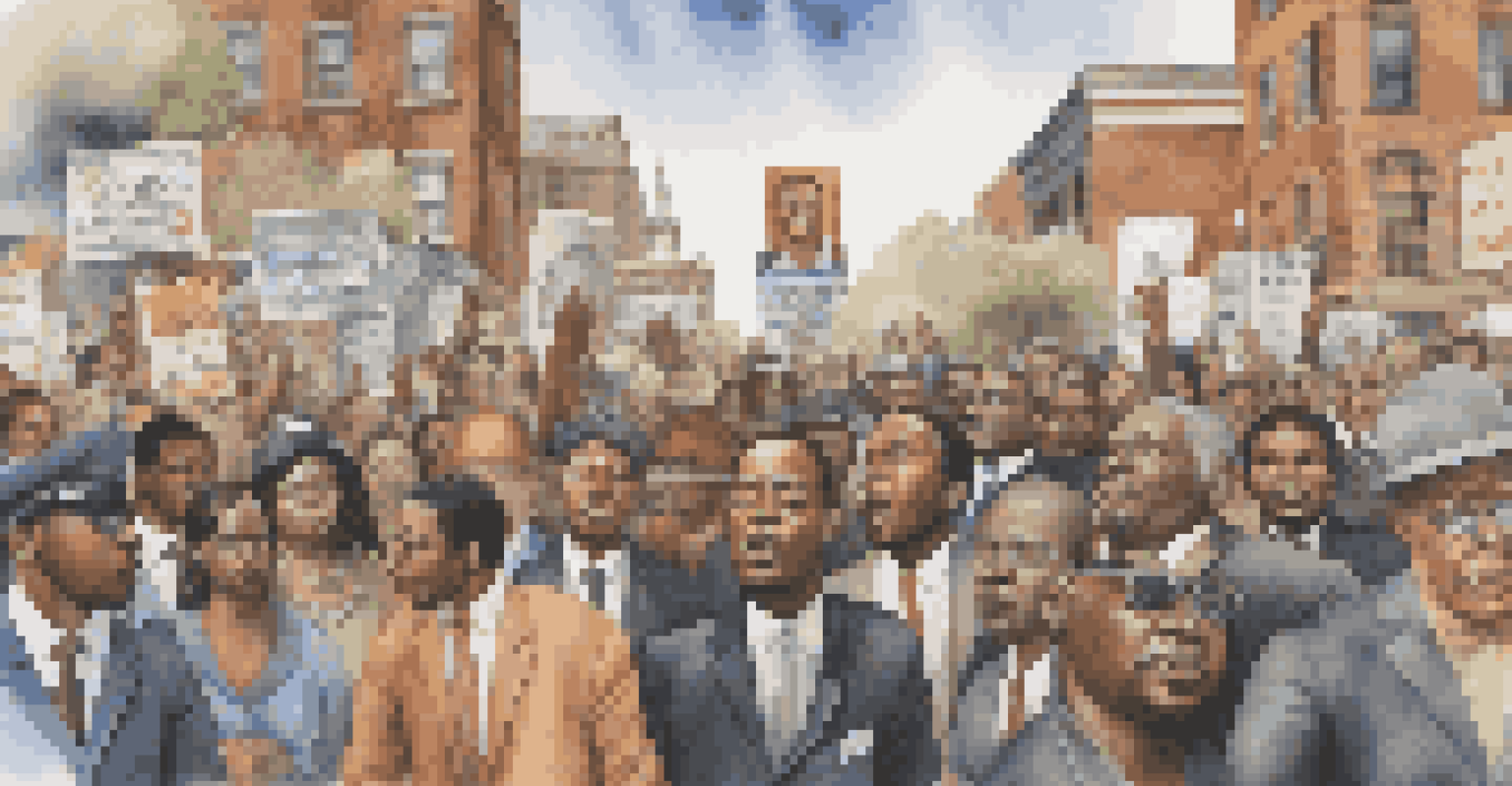Using Music to Raise Awareness for Global Human Rights

The Power of Music in Social Movements
Music has long played a crucial role in social movements, serving as a rallying cry for change. Think about iconic songs like 'Imagine' by John Lennon or 'Blowin' in the Wind' by Bob Dylan; these anthems not only inspired individuals but also united communities with a shared vision for justice. When set to music, messages about human rights can resonate on a deeper emotional level, making them more impactful and memorable.
Music can change the world because it can change people.
In many cultures, music acts as a universal language, transcending barriers of language and geography. This is particularly powerful in the context of global human rights issues, where songs can convey stories of struggle, resilience, and hope. By tapping into this emotional resonance, artists can reach audiences who might otherwise feel disconnected from these important issues.
Furthermore, music encourages collective action, often galvanizing listeners to engage in advocacy efforts. From protests to fundraising campaigns, songs have the ability to create a sense of belonging and urgency, prompting individuals to take a stand for the rights of others.
Historical Examples of Music and Human Rights
Throughout history, music has been intertwined with human rights activism, serving as a tool for both protest and awareness. For instance, during the Civil Rights Movement in the United States, songs like 'We Shall Overcome' became synonymous with the struggle for equality and justice. These powerful melodies not only uplifted spirits but also provided a soundtrack to a movement that demanded change.

Another notable example is the anti-apartheid movement in South Africa, where musicians like Miriam Makeba and Hugh Masekela used their artistry to bring international attention to the injustices faced by their people. Their songs spoke directly to the pain and suffering caused by apartheid, inspiring listeners worldwide to join the fight for freedom.
Music Unites for Social Justice
Throughout history, music has served as a powerful rallying cry, inspiring collective action and raising awareness for human rights issues.
These historical instances highlight how music can serve as both a reflection and a catalyst for social change. By understanding these examples, we can appreciate the profound impact that music has had on human rights advocacy across different eras and regions.
Modern Artists Making a Difference
Today, many contemporary artists continue to use their platforms to raise awareness for human rights issues. Musicians like Beyoncé, Rihanna, and Kendrick Lamar often infuse their work with themes of social justice, tackling topics such as racial inequality, gender violence, and poverty. Their songs not only entertain but also educate listeners about pressing global concerns.
The power of music makes all the difference in the world.
For example, Beyoncé's 'Freedom' features a powerful message about resilience in the face of oppression, inspiring listeners to take action. Similarly, Kendrick Lamar's 'Alright' has become an anthem for the Black Lives Matter movement, promoting hope amid struggle. These artists understand the potential of music to spur conversations and mobilize people toward action.
By leveraging social media and streaming platforms, these musicians can reach wider audiences than ever before. This modern approach not only amplifies their messages but also encourages fan participation, fostering a community of advocates who are passionate about human rights.
Collaborations for Change
Collaborations among artists have become increasingly popular as a way to amplify messages of human rights. Projects like 'Artists for Peace and Justice' bring together musicians from various genres to raise funds and awareness for social issues. These collaborations can create a buzz, drawing attention to the cause while also showcasing the diversity of talent in the music industry.
One notable example is the song 'One World' featuring various artists, which promotes unity and action against climate change and human rights violations. By combining the voices of multiple artists, the song reaches a broader audience, reinforcing the idea that collective efforts can lead to significant change.
Modern Artists Drive Change
Contemporary musicians like Beyoncé and Kendrick Lamar use their platforms to address social justice themes, educating and mobilizing fans around pressing global concerns.
These partnerships not only highlight the importance of community in advocacy but also reflect the interconnectedness of various social issues. When artists unite for a cause, they demonstrate that music can transcend individual efforts, creating a powerful movement for change.
The Role of Music Festivals in Advocacy
Music festivals have emerged as vibrant platforms for raising awareness about human rights. Events like Coachella and Glastonbury often feature artists who advocate for social justice, using their performances to educate attendees about pressing issues. These festivals create a space where music lovers can engage with important topics while enjoying their favorite artists.
At these events, attendees are often introduced to various non-profit organizations focused on human rights. For example, many festivals incorporate booths or panels where activists can share their work and encourage festival-goers to get involved. This fusion of entertainment and advocacy creates a unique opportunity for individuals to learn about and participate in causes they might not have previously considered.
Moreover, the festive atmosphere of music festivals fosters a sense of community, allowing people to connect over shared values and passions. This sense of belonging can empower individuals to take action in their own lives, amplifying the impact of the messages conveyed through music.
Social Media: Amplifying Music's Impact
Social media has revolutionized the way music is used to raise awareness for human rights issues. Platforms like Instagram, Twitter, and TikTok enable artists to share their messages directly with fans, fostering a sense of immediacy and connection. This direct line of communication allows for real-time engagement, making it easier for artists to mobilize their audiences around social causes.
For instance, artists can use social media to promote events, share educational content, or even organize fundraising campaigns. Hashtags such as #BlackLivesMatter or #MeToo have enabled artists to align their messages with broader movements, creating a sense of solidarity among fans and advocates alike. This digital activism can lead to real-world change, as online awareness often translates into offline action.
Festivals Foster Advocacy Community
Music festivals create vibrant spaces where attendees can engage with human rights issues and connect with advocacy organizations while enjoying live performances.
Furthermore, social media allows for the rapid sharing of music that addresses human rights issues, enabling songs to go viral and reach audiences across the globe. This amplification can inspire listeners to advocate for change, demonstrating that music truly has the power to ignite social movements.
The Future of Music and Human Rights Advocacy
As we look to the future, the intersection of music and human rights advocacy is likely to evolve even further. With the rise of new technologies and platforms, artists can explore innovative ways to engage their audiences and raise awareness about critical issues. Augmented reality concerts and interactive music experiences may provide fresh opportunities for advocacy and education.
Moreover, the growing emphasis on diversity and inclusion in the music industry means that a wider range of voices will be heard. This inclusivity can lead to a richer tapestry of stories and messages, addressing various human rights concerns from multiple perspectives. The more diverse the voices in music, the more comprehensive the dialogue around human rights becomes.

Ultimately, the future of music as a tool for advocacy holds immense potential. By harnessing the power of creativity and collaboration, artists can continue to inspire change and foster a global community dedicated to promoting human rights for all.